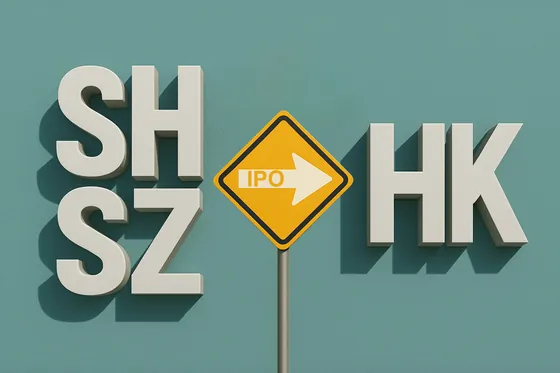
China’s Game-Changing Stock Market Policy: Unlocking New Opportunities!
2025-06-11
Author: Kai
China Set to Revolutionize the Stock Market
In a bold move that could reshape the investment landscape, China has launched a groundbreaking policy allowing companies from the Greater Bay Area (GBA) that are already listed on the Hong Kong Stock Exchange (HKEX) to also seek listings on the Shenzhen Stock Exchange (SZSE). This strategic decision aims to deepen the integration of the Chinese mainland’s stock market and enhance financial collaboration across this vibrant economic hub, which encompasses Hong Kong, Macao, and nine bustling cities in Guangdong province, including Shenzhen and Guangzhou.
A Historic Shift in Listing Opportunities
Finalized in August 2024, the new guidelines emerged as part of a comprehensive initiative to stimulate reform and innovation within the region. Publicly unveiled by the State Council and the Communist Party Central Committee, this policy marks a significant departure from past restrictions that limited mainland stock market access predominantly to domestic companies.
Before 2018, only companies headquartered on the mainland could list on Chinese exchanges. However, the introduction of 'red-chip' firms—those incorporated overseas yet primarily operating in China—began to shift this landscape. By 2021, specific industries, including next-generation information technology and new-energy vehicles, were permitted to list on Shanghai’s STAR Market, paving the way for more extensive reforms.
Unlocking Potential for GBA-Registered Firms
Now, the latest reform specifically empowers GBA-registered companies listed in Hong Kong, including those based in Macao, to launch initial public offerings (IPOs) in Shenzhen—an unprecedented opportunity for non-mainland and non-red-chip firms. However, crucial operational and regulatory details surrounding this new cross-listing pathway are still forthcoming.
The Market Landscape: Who Stands to Gain?
Recent data from Caixin reveals that out of the 2,636 companies listed on HKEX, 197 are registered in Hong Kong, with none from Macao. Notable Hong Kong-listed giants such as AIA Group, Hong Kong Exchanges and Clearing, and Sun Hung Kai Properties, each boasting market capitalizations over HK$100 billion (approximately $12.7 billion), are yet to tap into mainland market opportunities.
Challenges in the Regulatory Environment
Despite this progressive policy, challenges persist. China’s recent tightening of IPO regulations, aimed at stabilizing its onshore market, has complicated the domestic listing landscape for offshore companies. As a result, many Chinese businesses have turned to foreign exchanges for capital, with Hong Kong emerging as a favored choice due to its favorable business climate and strategic proximity to the mainland.
A Closer Look at 2024 Listings
In 2024 alone, 97 mainland companies successfully completed overseas listings, raising a staggering $12.25 billion, two-thirds of which occurred in Hong Kong. In stark contrast, the mainland witnessed only 100 IPOs during the same period, generating $9.05 billion—a sharp decline compared to the 495 listings that raised $87.6 billion in 2021.
What Lies Ahead for Investors?
The new policy undoubtedly fosters greater flexibility, but the approval speed and volume of mainland listings will hinge on the resilience of China's secondary market. While investor enthusiasm for IPOs remains robust—often resulting in soaring debut prices—large-scale fundraising may still encounter hurdles.
Conclusion: Shaping the Future of Finance in China
Ultimately, these reforms position Shenzhen and the Greater Bay Area as vital engines for China’s evolving economic and financial strategy. As the market adjusts, both local and international investors will be closely watching how these developments unfold.




 Brasil (PT)
Brasil (PT)
 Canada (EN)
Canada (EN)
 Chile (ES)
Chile (ES)
 Česko (CS)
Česko (CS)
 대한민국 (KO)
대한민국 (KO)
 España (ES)
España (ES)
 France (FR)
France (FR)
 Hong Kong (EN)
Hong Kong (EN)
 Italia (IT)
Italia (IT)
 日本 (JA)
日本 (JA)
 Magyarország (HU)
Magyarország (HU)
 Norge (NO)
Norge (NO)
 Polska (PL)
Polska (PL)
 Schweiz (DE)
Schweiz (DE)
 Singapore (EN)
Singapore (EN)
 Sverige (SV)
Sverige (SV)
 Suomi (FI)
Suomi (FI)
 Türkiye (TR)
Türkiye (TR)
 الإمارات العربية المتحدة (AR)
الإمارات العربية المتحدة (AR)